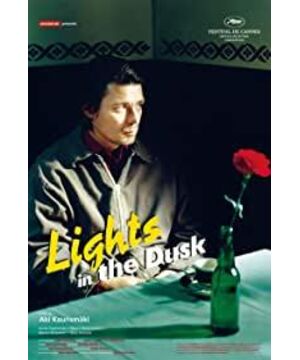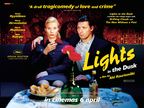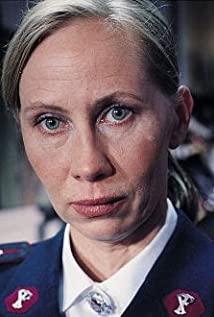With only a business degree, Koistinen, the protagonist who had to act as a security guard, is a person with a rather contradictory personality. He is withdrawn and passive, yet looking forward to interacting with others; he has no self-confidence, but he has a lot of self-esteem. Coust's passive, fragile and very strong personality not only prompted him to be ridiculed and ridiculed by his security colleagues, but also made him not good at communicating with women.
Because of lack of education, low job, dilapidated residence, and lack of friends and girlfriends, Koster feels humiliated in social life. Looking at people in the upper class with sharp suits, generous shots, and beautiful women accompanying them, Kost inevitably dreams of starting a company, marrying a beautiful lady, and achieving a successful and prosperous life, so as to get rid of the current lowly and lonely situation. Unfortunately, Coste was not only sternly returned by the bank loan department, but also targeted by a jewelry thieves group. He was planted by a beautiful woman and voluntarily sent to jail. After being released on parole, Coster finally found a shelter and job, but the head of the theft group broke the record and lost his job. Desperate, he finally took a fruit knife to assassinate the leader, but was beaten up by Xiao Yi. People are desperate, nothing else.
This film thus highlights the plight of the people at the bottom: being gentle, frugal, frugal, ignorant of the law, and not claiming rights for themselves, they will inevitably suffer the double blow of the dark and obscene violence of the underworld and the institutional violence of the state law. But this is just a superficial view. More importantly, it seems that the class consciousness that can make the disadvantaged workers no longer fate, and can unite and demand universal rights to fight democracy, seems to be a fantasy today.
As Slavoj Žižek said, in today’s post-politics society where the political is “foreclosed” (the political), true political intervention is no longer possible, and the state therefore reduces A defender of public order, serving the inclusive humanitarianism of capital markets and multiculturalism. We no longer see the "working class" as a political subject demanding its universal rights; in contrast, we can only see that workers, as one of the diverse special classes and groups in a multicultural society, have their own special difficulties and problems. "It is worthy of our thoughts and care," "It is worthy of the government to solve the problem."
However, if the "care" and "problem solving" for workers can only be considered within the framework of the current socio-political relationship, then the fundamental reasons that make workers' lives impossible to improve cannot be eliminated. The result is that if workers, such as the Coster in this film, do not dream of "striving for the top" and become capitalists according to the current social logic, they are "willing to degenerate" and rely on the social assistance policies of the public security state (such as this film's Night shelter) and the relief of capitalists who supplement the former.
Regardless of whether it is "striving for the top" or "depraved", workers have always been trapped in the logic of capital markets and multiculturalism. They are content to be exploited and then rescued, and they cannot be politicized and excluded from the outside world. Facing the dilemma, there is no way to self-subject and launch a democratic struggle.
Because they are squeezed out and settled by the existing framework, and the underprivileged people who are hungry but still have difficulty getting out of their plight, how should they face the post-political situation? From the point of view of "Twilight", although Coust's experience has deteriorated and even reached the point of desperation at the end of the film, director Guo Lismaki does not advocate the fatalism, doomsday and the doomsday theory of the bottom people. Said in Doomsday.
In contrast, through the announcement of the ending black stray children, the guardianship of the abandoned stray dogs, and the care of the female vendor owner, Guo Lismaki hinted that the bottom people/animals must survive under the triple suppression of the state, capital, and underworld. , It is necessary to unite with other disadvantaged people/animals to universalize itself, so as to shake the existing multicultural society that claims to "respect differences" but actually sacrifices the "natural" and "neutral" order of a few others.
In the last scene, Coust shook the hand of the female vendor owner, which not only meant that he finally accepted her love, but also symbolized that he finally no longer envied the upper class and rejected his social status and was willing to alliance with the disadvantaged. And when the disadvantaged are in alliance with each other and act in practice, isn't it a way out when desperate, isn't it the light that emerges in the twilight? It is at the end of the film that the title "Twilight of the Twilight" is embodied in the image of Koster shaking hands with the female boss.
View more about Lights in the Dusk reviews











